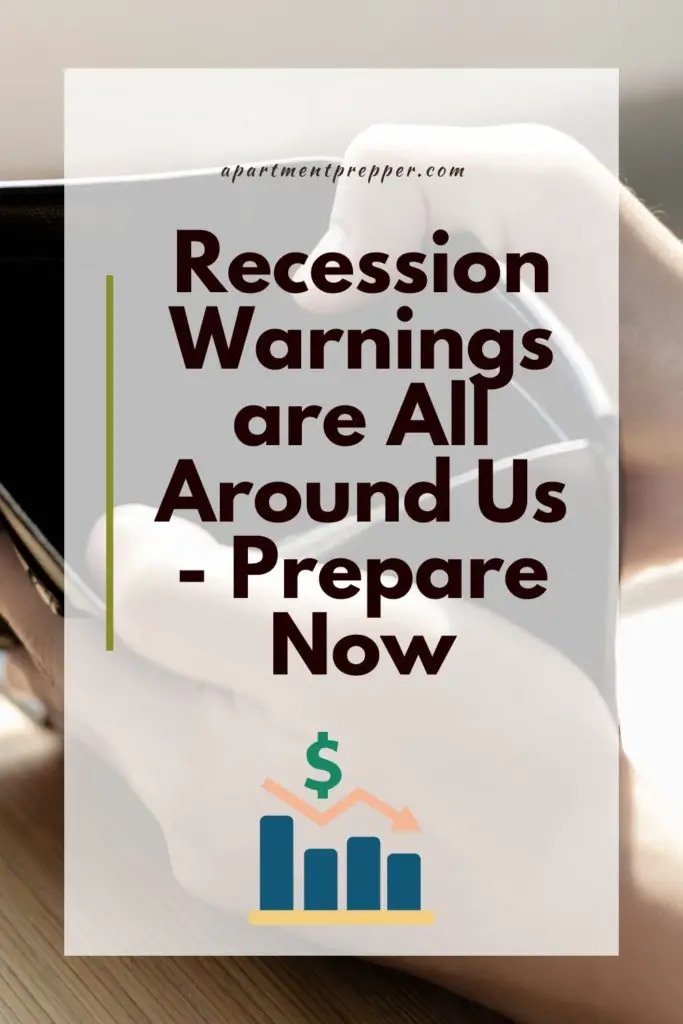Written by Bernie Carr
So many sectors are warning of an impending recession; some say it is already here.
A recession is a major decline in the country’s economic activity that can last for months or even years. According to the National Bureau of Economic Research, real gross domestic product (GDP) decreased at an annual rate of 1.6 percent in the first quarter of 2022. The U.S. economy also shrank for the second consecutive quarter this past spring, as consumers cut back on spending due to higher interest rates, high gasoline and food prices.
While gross domestic product (GDP) is the broadest measure of economic activity, the often-cited identification of a recession with two consecutive quarters of negative GDP growth is not an official designation. The designation of a recession is the province of a committee of experts at the National Bureau of Economic Research (NBER), a private non-profit research organization that focuses on understanding the U.S. economy.
Source: The U.S. Bureau of Economic Analysis, an agency of the US Dept of Commerce
This week, the Federal Reserve is has increased interest rates again to combat inflation, but the move also raises concerns that the country could dip into a recession.
This video explains all the warning signs. https://www.youtube.com/watch?v=UqKpXNNO5XI.
How would a recession affect you?
The biggest effect of a recession is the loss of jobs. Companies eliminate jobs to lower their costs. Other major effects are the consequences of job losses such as poor health, lower savings. During the recent Great Recession of 2007-2009, job losses impacted workers’ employment, earnings, health insurance coverage, retirement savings, according to the Social Security Administration. Workers who became unemployed applied for government safety net programs such as disability insurance and continued to receive them even after the recession was said to have ended.
The Bureau of Labor and Statistics also indicated the recessions have long lasting effects on both the oldest and youngest adults, as they struggle with finding a keeping a job during a downturn. Young adults who have high levels of student loan debt may find it more difficult to recover financially.
What can you do?
Assess your finances
Take a snapshot of your current financial situation. Be honest with yourself: take a look at your income, expenses, savings, etc. Are you heavily in debt? What is your job outlook? How much time do you have until the next big expense such as buying a home, kid’s college, planning your retirement etc.?
Review your investments, such as pension plans, stocks, 401k etc. and determine if your tolerance for risk matches up with the asset mixes in your investment. I am not an expert on these matters and don’t give investment advice- see a financial adviser to determine what is your best move given the current outlook.
Pay down debt
Whether there is a recession or not, it is prudent to get out of debt now. Stop charging your credit cards, and start a payoff plan.
Value your job
Consider what would happen if you were to lose your job. Even if you may not like your job, you need it to pay rent and put food on the table. Do whatever you can to make yourself indispensable at your current employment.
You might consider doing more networking with your colleagues, continuing your education, and staying current on trends in your industry to benefit you if you need to change jobs during this recession.
Get a side hustle
Start a micro business or a part time job to bring in extra money. Many service employers have “help wanted” signs and the job market is still strong.
Lower your expenses
Be honest with yourself and look at where your money is going. Evaluate each expense to see if it’s a “want” or “need.”
- Cancel subscriptions on apps and services you rarely use.
- Eliminate cable.
- Cook more meals at home.
- Get a library card and start using the library for books and entertainment.
Acquire self-sufficiency skills
You don’t need to own land or farm to takes steps toward more self-sufficiency. Learn skills that help you lower your monthly outlay. My latest book, FRUGAL DIY shows easy projects you can do in your spare time, and start making items you previously bought at the store.
Increase savings
Save more money for your your cash emergency fund.
Prep
Building a small stockpile is a great way to withstand downturns. Your emergency supplies can tide you over in the event of job loss.
Don’t panic
Recessions don’t necessarily mean you will lose your job. It does not affect everyone in the same way. Some business are considered recession proof. People still need to buy food, car repair, daycare, get haircuts, care for pets their pets, and utilize goods and services. All you can do is weather
If you found this article interesting or helpful, please consider helping us out (without costing you anything)! We are an affiliate of Amazon.com, which means we received a small commission if you click through one of our Amazon links when you shop, at totally no cost to you. This helps keep the lights on at the blog. Thanks!
Bernie Carr is the founder of Apartment Prepper. She has written several books including the best-selling Prepper’s Pocket Guide, Jake and Miller’s Big Adventure, The Penny-Pinching Prepper and How to Prepare for Most Emergencies on a $50 a Month Budget. Bernie’s latest e-book, FRUGAL DIY has just been released on Amazon. Her work appears in sites such as the Allstate Blog and Clark.com, as well as print magazines such as Backwoods Survival Guide and Prepper Survival Guide. She has been featured in national publications such as Fox Business and Popular Mechanics. Learn more about Bernie here.
FB: https://www.facebook.com/apartmentprepper
Instagram: https://www.instagram.com/apartmentpreppers/
Twitter: https://twitter.com/AptPrepper
YouTube: https://www.youtube.com/channel/UC7vOtdbo-wiBeBxD6puCr1Q
Pinterest: https://www.pinterest.com/aptprepper/



One comment